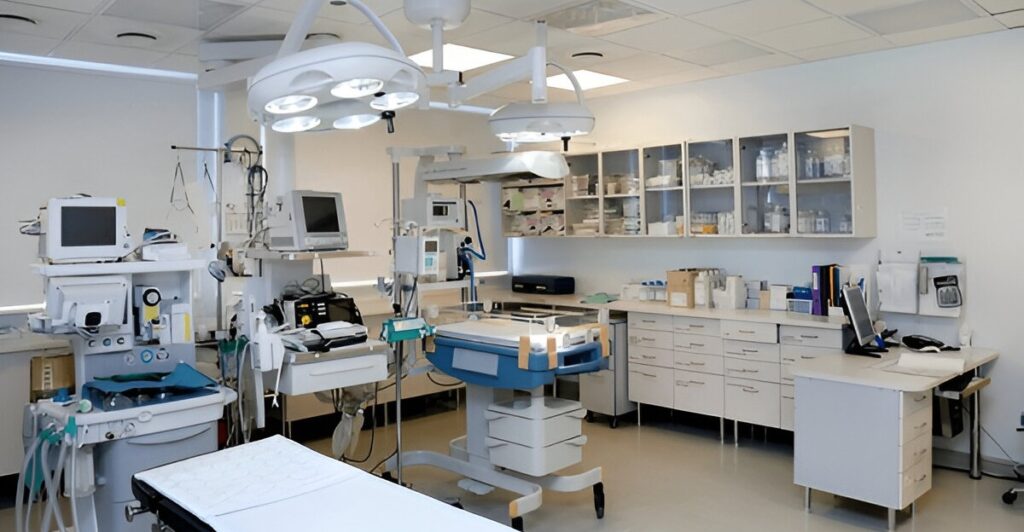Introduction: The Foundation of Healthy Communities
Primary healthcare is the backbone of any effective health system, serving as the first point of contact for individuals seeking medical care. It focuses on accessible, affordable, and comprehensive health services that promote well-being and prevent disease. From routine check-ups to managing chronic conditions, primary healthcare plays a pivotal role in fostering healthier communities. This article explores what primary healthcare is, why it’s essential, its benefits, challenges, and its future in transforming global health.
What Is Primary Healthcare?
Primary healthcare is a holistic approach to health that emphasizes prevention, early intervention, and community-based care. According to the World Health Organization (WHO), it addresses the majority of a person’s health needs throughout their lifetime, integrating physical, mental, and social well-being. It is delivered by professionals like general practitioners, nurses, and community health workers in settings such as clinics, community centers, and even homes.
Core Components of Primary Healthcare
Primary healthcare is built on several key pillars:
- Accessibility: Services are available to all, regardless of income, location, or background.
- Prevention: Focuses on vaccinations, screenings, and health education to prevent illnesses.
- Comprehensive Care: Covers a wide range of services, from maternal care to chronic disease management.
- Community Involvement: Engages local populations to address specific health needs.
- Coordination: Links patients to specialists or hospitals when advanced care is needed.
Principles of Primary Healthcare
The 1978 Alma-Ata Declaration by WHO outlined primary healthcare as a strategy for achieving “health for all.” Its principles include equity, community participation, and intersectoral collaboration, ensuring that healthcare systems are inclusive and responsive to local needs.
Why Is Primary Healthcare Important?
Primary healthcare is critical for individuals, communities, and entire nations. Its importance lies in its ability to improve health outcomes, reduce costs, and promote equity. Below are the key reasons why primary healthcare matters:
1. Promotes Preventive Healthcare
Primary healthcare emphasizes preventing diseases before they require costly treatments. Routine screenings, immunizations, and lifestyle counseling help catch issues early. For example, regular blood pressure checks can prevent heart disease, while vaccinations have reduced global measles cases by over 80% since 2000.
2. Enhances Accessibility and Equity
By bringing healthcare to underserved areas, primary healthcare ensures that everyone, including rural and low-income populations, can access services. Mobile clinics and community health workers play a vital role in reaching remote regions, reducing disparities in health outcomes.
3. Reduces Healthcare Costs
Investing in primary healthcare lowers the burden on hospitals and emergency services. A study by the OECD found that countries with strong primary care systems spend less on healthcare per capita while achieving better health outcomes. Early interventions prevent expensive hospitalizations.
4. Manages Chronic Diseases Effectively
With non-communicable diseases like diabetes and hypertension on the rise, primary healthcare provides ongoing management through regular monitoring and patient education. This approach improves quality of life and reduces complications.
5. Strengthens Community Health
Primary healthcare fosters trust between providers and communities, encouraging people to seek care proactively. Community health programs, such as those promoting maternal and child health, empower individuals to take charge of their well-being.
Real-World Examples of Primary Healthcare in Action
Primary healthcare initiatives worldwide demonstrate its transformative impact. Here are two notable examples:
Community Health Workers in Ethiopia
Ethiopia’s Health Extension Program trains community health workers to deliver primary healthcare in rural areas. These workers provide maternal care, vaccinations, and health education, reaching over 80% of the population. Since its launch, child mortality rates have dropped significantly.
NHS Primary Care in the UK
The UK’s National Health Service (NHS) offers free primary care through general practitioners (GPs). Patients access routine check-ups, mental health support, and referrals to specialists, ensuring comprehensive care. The system’s focus on prevention has improved life expectancy and reduced hospital admissions.
These examples highlight how primary healthcare adapts to diverse contexts, delivering measurable results.
Challenges in Primary Healthcare Delivery
Despite its benefits, primary healthcare faces obstacles that hinder its effectiveness. Addressing these challenges is crucial for maximizing its impact.
1. Resource Shortages
Many regions, particularly in low-income countries, lack sufficient healthcare workers, facilities, and supplies. The WHO estimates a global shortage of 4 million health workers, with the greatest gaps in sub-Saharan Africa.
2. Inequities in Access
Urban-rural divides and socioeconomic barriers limit access to primary healthcare. Women, minorities, and indigenous groups often face additional hurdles, such as discrimination or cultural insensitivity.
3. Funding Constraints
Primary healthcare requires sustained investment, but many governments prioritize hospital-based care. Limited budgets force providers to stretch resources, compromising service quality.
4. Integration with Technology
While technology offers solutions like telemedicine, integrating it into primary healthcare systems is challenging, especially in areas with poor infrastructure or low digital literacy.
5. Addressing Emerging Health Needs
Rising mental health issues, aging populations, and climate-related health risks demand adaptive primary healthcare systems. Many providers struggle to meet these evolving needs without additional training or resources.
The Future of Primary Healthcare
The future of primary healthcare lies in innovation, collaboration, and a renewed commitment to equity. Emerging trends are shaping its evolution:
1. Digital Health and Telemedicine
Telemedicine platforms expand access to primary healthcare, allowing patients to consult providers remotely. In India, telehealth services have reached millions in rural areas, improving diagnosis and follow-up care.
2. Artificial Intelligence and Data Analytics
AI tools can enhance primary healthcare by predicting disease outbreaks, optimizing resource allocation, and supporting diagnostics. For example, AI-powered apps help community health workers identify malnutrition in children.
3. Strengthened Health Policies
Governments are recognizing the value of primary healthcare. Initiatives like Universal Health Coverage (UHC) aim to ensure all people access essential services without financial hardship. The WHO’s goal is to achieve UHC for 1 billion more people by 2030.
4. Community-Driven Solutions
Empowering communities to lead health initiatives ensures sustainability. Training local health workers and involving residents in program design create culturally relevant, long-lasting systems.
5. Focus on Mental Health
Primary healthcare is expanding to include mental health services, with providers offering counseling and stress management alongside physical care. This holistic approach addresses growing global demand.
Conclusion: The Lifeline of Global Health
Primary healthcare is more than a service—it’s a foundation for healthier, more equitable societies. By prioritizing prevention, accessibility, and community engagement, it saves lives, reduces costs, and empowers individuals. Despite challenges like resource shortages and inequities, innovations in technology and policy are paving the way for a brighter future. Supporting primary healthcare means investing in the well-being of people everywhere.
Call to Action: Advocate for stronger primary healthcare systems in your community. Support local clinics, volunteer with health programs, or spread awareness about the importance of accessible care.


